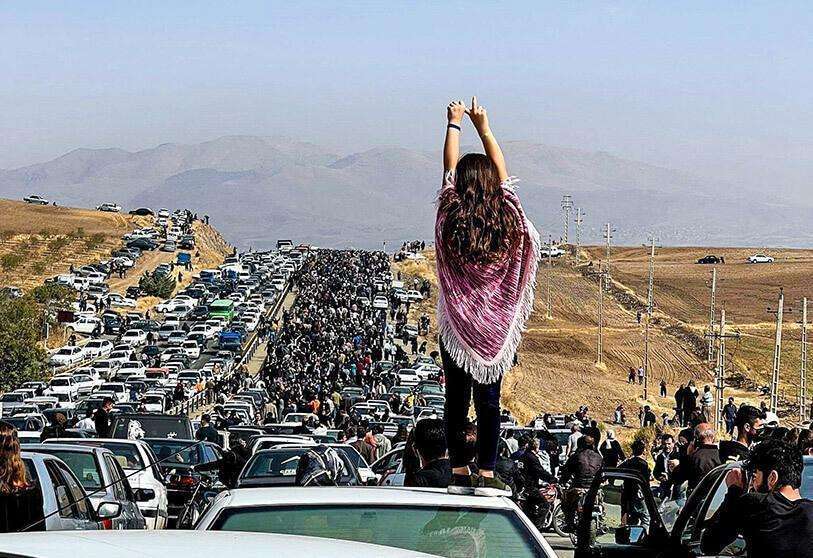Iran abolishes morality police who arrested Mahsa Amini

The widespread protests in Iran, far from ending, continue to grow as the days go by. This is the first time in four decades that Khamenei's authoritarian regime has found itself in such a complicated situation. On previous occasions, repression and increased violence by the authorities had served the government to quell criticism, but this time it has been Tehran that has had to backtrack by abolishing the morality police, the force that arrested Mahsa Amini, whose death for wearing the veil incorrectly marked the beginning of the demonstrations in Iran.

Mohamad Yafar Montazeri, Iran's prosecutor general, justifies the decision by saying that "it has nothing to do with the judiciary". The disappearance of the morality police does not mean that Iran will stop imposing the dress code on women in the country. Montazeri himself has said that this aspect is still very important, highlighting the holy city of Qom, located south of the capital. He assures that "the bad hijab is one of the main concerns of the judiciary, as well as of our revolutionary society".
On the other hand, the attorney general argues that "judicial action is the last resort and cultural measures come before any other". He has also announced that work is underway to amend the law on the compulsory wearing of the Islamic headscarf, although he has not yet specified what the change will consist of. This is being carried out by the Iranian parliament and a special body headed by President Ebrahim Raisi. The government has been forced to give in to continued protests and condemnation from the international community to revise the text that led to the arrest of the young Amini.

The announcement of the abolition of the morality police does not convince Iranian society or international activists who point to a change of name rather than an actual disappearance of the force. "The Islamic Republic has changed the name of the morality police to avoid the pressure of international public opinion," some believe, distrusting Montazeri's announcement that "the morality police has been dismantled by the same people who created it".
To lift world's public opinion pressure, the IR changes name of the "Morality Police". However, Iranian women & girls are still beaten, imprisoned or killed like #MahsaAmini for mandatory dress code. Don't let the IR fool you with lies and be Iranian's voice.#IranRevolution @UN
— راوی انقلاب (@ravii_enqelab) December 4, 2022
The protests in the streets of Tehran have left 448 people dead - the official regime version puts the number at 300 - according to the Iranian Human Rights Organisation (IHR), as a result of repression by Iranian security forces. The Sistan and Baluchistan region - one of the most conservative in the country, populated mainly by Sunnis - is where the situation is most unstable, with 128 dead in this area alone, half of them under 18 years of age and 30 of them women.










